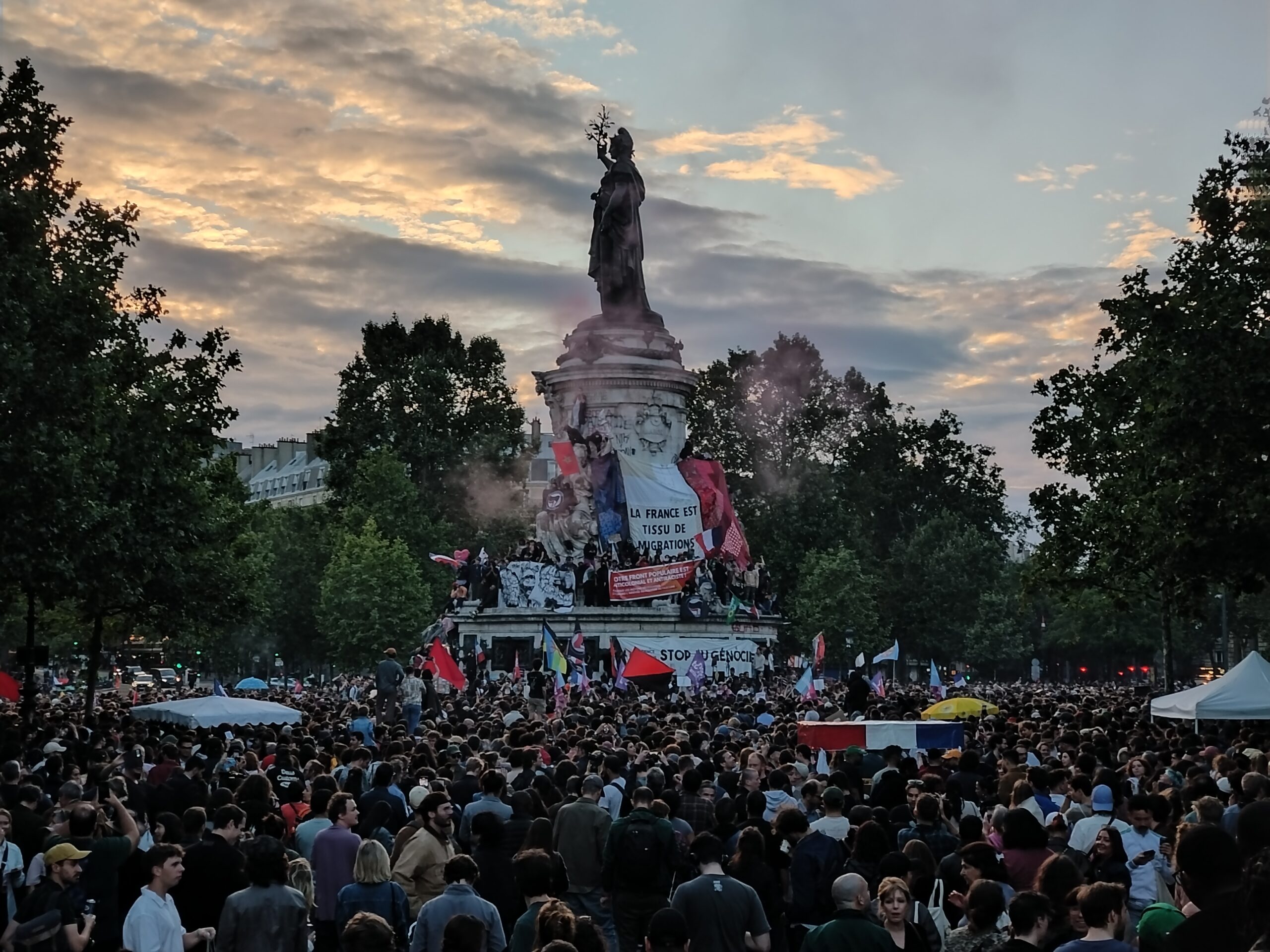No single group secured the required 289 of the 577 seats in the lower house to form a working majority.
The New Popular Front (NFP) — a broad left-wing alliance uniting the previously divided Communist, Ecologist, Socialist, and France Unbowed parties — won the largest number of seats, 182.
The NFP was only founded in mid-June after the snap election was announced as a counterforce to the rising far right.
Its platform includes wealth redistribution, investment in public services, recognition of Palestinian statehood, and the repeal of the 2023 retirement reform.
President Emmanuel Macron’s centrist coalition Ensemble came second with 168 seats while Marie LePen’s far-right National Rally (RN) and its allies took 142.
Opinion polls on 30 June predicted National Rally would be the largest party in the National Assembly.
Sunday’s election results have left France in political limbo without a clear path to form a new government, unprecedented since the Fifth Republic was established in 1958.
Negotiations began on Monday 8 July to organise a governing “cohabitation” — where the president must appoint a prime minister from another party — and are expected to last several weeks.
Macron has asked Prime Minister Gabriel Attal, who announced his resignation on Sunday, to remain temporarily for “the stability of the country”.
Leaders of the NFP have called for Macron to name a prime minister from their ranks and allow the left to form the next government.
France Unbowed founder Jean Luc-Mélenchon said, “The lessons of this election are unmistakable: the defeat of the president of the republic and his coalition is clearly confirmed.”
“The president must bow down and admit defeat without trying to skirt around it,” said Mélenchon.
Parliament will first convene with its newly elected members on 18 July.






